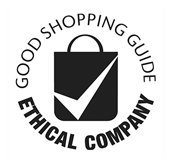Let’s talk about Toxic Shock Syndrome
At Mooncup Ltd, one of our intentions from the outset has been to help make our experience of periods as positive as possible. However, there can of course be challenges and even risks associated with our menstrual cycle. In fact, at Mooncup, we believe that real empowerment can come from lifting the lid on that experience as honestly as we can – blood, discomfort, risks and all – so that we can make informed choices.
And one of the greatest risks that can be associated with our periods is Toxic Shock Syndrome (TSS). Rare but potentially fatal, it’s important that we get informed about the facts so that we can help in reducing that risk.
What is Toxic Shock Syndrome?
TSS is a rare but life-threatening condition caused by certain bacteria entering the bloodstream and releasing harmful toxins. The bacteria associated with TSS can commonly live harmlessly on the skin, or in the nose, mouth or vagina – it is when an overgrowth of this bacteria causes toxins to be produced that TSS can occur.
TSS is often associated with the use of tampons, but the condition can affect anyone. It has also been linked to the use of other internal devices such as intra-uterine contraception (IUD/IUS), intra-vaginal contraception and menstrual cups, as well as individuals who have recently had surgery, soft tissue and bone infections, and insect bites.
TSS gets worse very quickly and can be fatal if not treated promptly. But if it’s diagnosed and treated early, most people make a full recovery. Find out more on the NHS website.
Because TSS is so rare and its symptoms mimic those of many other conditions (like flu), it can often be misdiagnosed. So it’s important to recognise the signs and act quickly if you have concerns.
Can I get Toxic Shock Syndrome when using a menstrual cup?
Yes, use of any internal vaginal device carries some risk of TSS. This includes any internal menstrual product: tampons and menstrual cups.
Toxic Shock Syndrome (TSS) symptoms
The symptoms of TSS can include:
- a sudden high temperature
- flu-like symptoms, such as a headache, feeling cold, tired or exhausted, an aching body, a sore throat and a cough
- feeling and being sick
- diarrhoea
- a widespread sunburn-like rash
- dizziness or fainting
The NHS also indicate the following symptoms:
- lips, tongue and the whites of the eyes turning a bright red
- difficulty breathing
- confusion
What can I do to reduce the risk?
- If you experience any of these symptoms during or soon after your period, remove any internal menstrual product you may be wearing and seek medical help immediately – make sure you let the health professional know that you are currently, or have recently been menstruating
- Do not use any internal vaginal devices (including the Mooncup) if you have previously been diagnosed with TSS
- Clean your Mooncup thoroughly before using it for the first time and in between periods, as described in the Instructions for Use
- Remove, wash and reinsert your Mooncup at least every 4-8 hours during your period. This means that you will need to do this at least 3 times in 24 hours
- Wash your hands before and after handling your Mooncup
Different brands offer different guidance about how long you can wear your menstrual cup for, and some don’t mention or even deny there is a TSS risk. Why is this?
Unfortunately the growth in the menstrual cup market has seen misleading information around using a menstrual cup circulating, with some products even being sold without any instructions for use. This misinformation can understandably cause confusion and even risks with, for example, different manufacturers indicating different instructions for the maximum amount of time that a menstrual cup should be worn for.
In Europe, there are currently no specific regulations governing the composition, manufacture or use of menstrual products. Meanwhile, in the United States, the US Food and Drug Administration (FDA) has classified these products as medical devices and supervised their marketing since the late 1970s.
Recently France’s national agency for food, environmental and occupational health (ANSES) has called for manufacturers of cups and tampons to provide ‘clearer information’ on how long they could be used for alongside indicating TSS risks on labelling.
At Mooncup Ltd we are committed to quality as demonstrated through internationally recognised standards. Mooncup Ltd has been registered with the FDA (US Food and Drug Administration) since 2006.
Knowledge around TSS is evolving and there is still much to be understood. Knowing the signs and symptoms to look out for can help in taking control of your own health and potentially even be a lifesaver.
If you have any concerns about TSS we’d recommend you contact your doctor. For any questions around using the Mooncup® contact the Mooncup Advice Team.
Read more on the Mooncup blog:
Menstrual cup myths – what to look out for.





